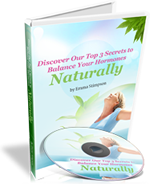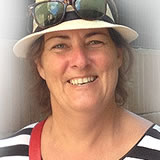Today I want to talk to you about how to get pregnant again without giving up breastfeeding.
Book a Consultation with Naturopath Emma Stimpson
If you have a child already who you are breastfeeding, but you have a longing and yearning to grow your family and have another baby, but you DON’T want to give up breastfeeding – sometimes you can be in a bit of a tricky situation.
There are plenty of women who fall pregnant and conceive additional children whilst they are still breastfeeding but for some women, breastfeeding can inhibit ovulation and the return of their cycle and definitely it can inhibit fertility.
If you want to get pregnant again without giving up breastfeeding, there are some strategies you can employ that will help you conceive.
My Tips
My first suggestion would be to stop night feeds. We know that the number of feeds you are giving your child throughout the course of 24 hours will influence the return of ovulation. Stopping night feeds is one of the best ways to change the number of feeds you are giving to help restore ovulation.
We also know that abrupt changes bring back fertility more quickly than gradual changes. So whilst it might feel like more of a shock to your baby or child and yourself to very quickly stop night feeds (rather than do a slow transition); for your fertility that’s actually preferable.
Of course, you need to manage this in the way that is best for your family and for your current child. But if you really want to fall pregnant again without giving up breastfeeding, stopping night feeds abruptly rather than slowly can make a big difference.
We also know that (probably for a similar reason), starting your baby on solids (depending on your baby’s age) can also be helpful. Once you start your baby on solids automatically the number of feeds that most infants have throughout the course of the day reduces. It also influences the way your body produces breast milk.
This of course will be dependent on your child’s age. I definitely wouldn’t recommend introducing solids before the age of 4 months, but anywhere between the ages of 4-6 months is ideal. So if your baby is in that age range and you really want to get pregnant again I would highly recommend starting your child on solids.
Don’t Forget Your Diet
Optimizing your nutrient status is essential. Pregnancy and breastfeeding takes a huge toll on nutrient status for women. When you’re pregnant, the majority of your nutrients will actually go to your bubba. When you’re breastfeeding, mum gets nutrients first and then the remainder of the nutrients gets processed and transferred via the breastmilk to bubs.
If you’re currently breastfeeding, it’s likely your body will be nutritionally depleted. For the health of your next baby, for your own health and also for the health of your current child whom you are breastfeeding, focus on restoring your nutrients as much possible.
Make sure you’re taking a good quality pregnancy formula and I would recommend taking a formula that contains activated nutrients. We know that pregnancy multi’s that contain activated nutrients are much more easily absorbed by the body and depending on how your body utilizes nutrients (depending on what’s going with your genetics and how your body absorbs and utilises nutrients) those activated nutrients might be essential.
Ensure that you’re also including an essential fatty acid supplement, some additional magnesium and also just have a look at what’s going on with your diet. When you’re breastfeeding, and you have a young child, it’s really easy to let your diet start to slip a little bit. Because you’re so busy caring for another child. But caring for your body is just as important, particularly if you do want to fall pregnant again when you’re breastfeeding. You need to up the nutrient density of the foods you’re eating. So, have a real close look at your diet and see how you can improve it.
I also recommend that you get your hormones checked. If you have a thyroid hormone condition that can definitely delay ovulation from occurring. So, get your thyroid hormones checked and also check for Poly Cystic Ovarian Syndrome. If you have PCOS and you’re breastfeeding – it can really slow down the return of ovulation. Keep an eye on that and get your hormones tested.
Catch the First Egg
Make time with your partner as well! Make sure that you are having intercourse even if your periods haven’t returned. Some mums don’t even get a period in between one bub and pregnancy with the next child. If you’re very lucky, you can catch the first egg! So, relying on the return of your period isn’t necessarily a good sign. Look for signs of ovulation as well.
Increasing cervical mucous production is probably the most reliable sign. As soon as you start to see that cervical mucous production returning there is a good chance that you’re actually ovulating for the first time since you gave birth.
If you can catch the release of that first egg by making sure you’re having regular intercourse you might even fall pregnant again without actually having a period. It does happen!
Check your Partner’s Heatlh
Also look into getting your partner’s health checked. We know that in some cases, if there are any issues with sperm health it can be corrected over an 8-week time period which is only a very short amount of time. So again, if you are going to try and catch that first egg you want to make sure that your partners sperm is healthy and optimal so you get the best chance of conceiving first time round.
If none of these strategies work you need to have a good think about how old you are, and how quickly you want to conceive your next child. We know that for women who are over the age of 36, fertility does start to decline. So, if you are over the age of 36 you might want to consider ceasing breastfeeding sooner rather than later. By doing so, you’re going to have a much better chance of conceiving at an older age. So, keep that in the back of your mind. It certainly doesn’t mean that you won’t conceive whilst you’re breastfeeding (particularly if you’re mindful of the other strategies we’ve discussed) but I think you do need to be realistic about the impact that age can have on fertility and make the most of the opportunity to grow your family if this is something that is really important to you.
I hope this information gives you some hope and also some first steps into how you can increase your fertility and improve your chances of getting pregnant naturally whilst you’re still breastfeeding.
Please let me know if you have any questions!


 At the age of 45 I started getting migraine headaches, stomach cramps, mood swings plus feelings of illness and sight issues prior to my periods. This had been happening for about six months before I consulted with naturopath Emma Stimpson....
At the age of 45 I started getting migraine headaches, stomach cramps, mood swings plus feelings of illness and sight issues prior to my periods. This had been happening for about six months before I consulted with naturopath Emma Stimpson....
Book Online
Phone: (03) 5986 5170
687 Point Nepean Rd, McCrae, Vic, 3938, AUS
(Located at Seaside Osteo)